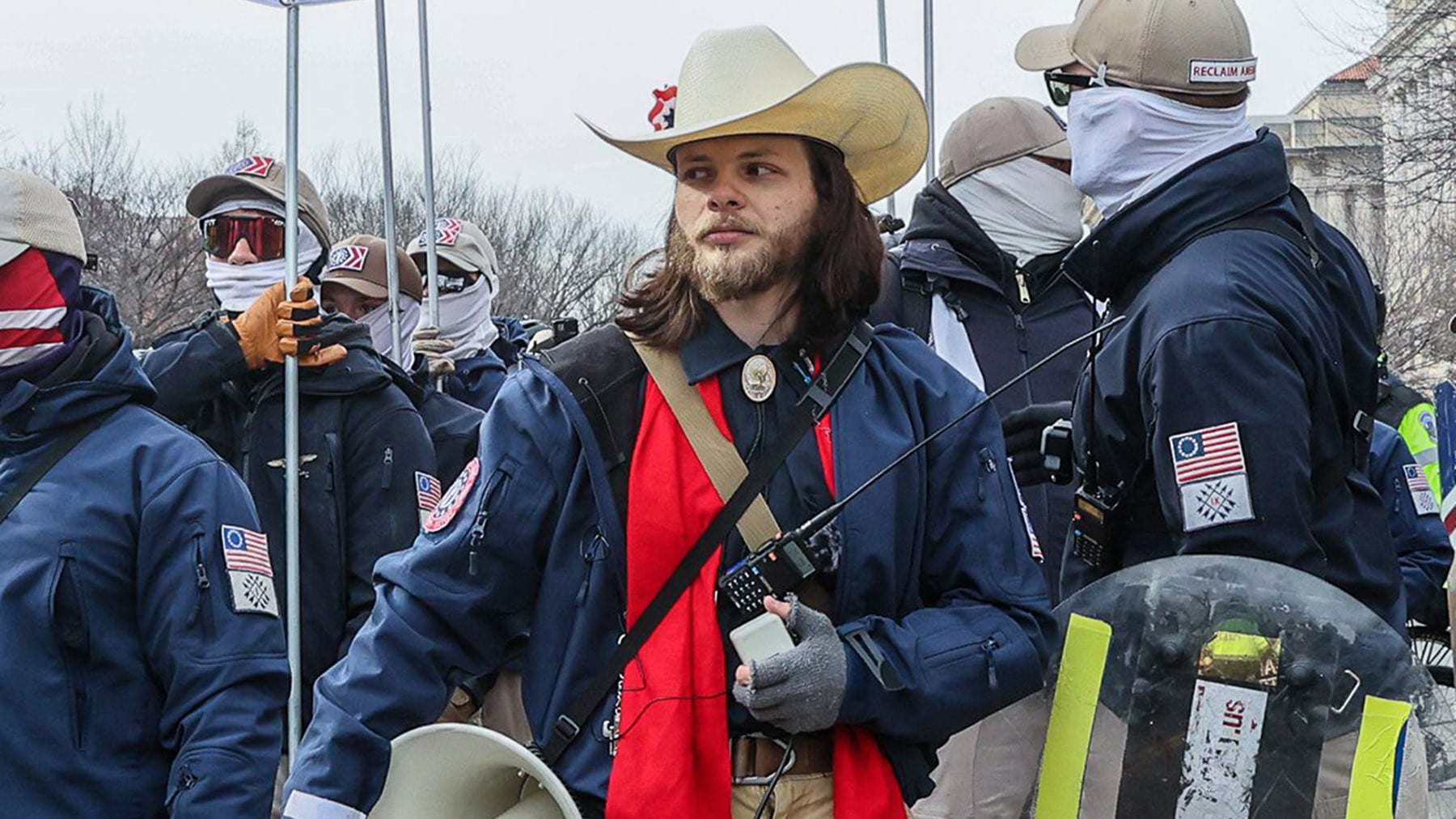Return to the Land Founder Eric Aarvoll Challenges Patriot Front"s Thomas Rousseau in Exclusive Interview
In a compelling and controversial interview, Eric Aarvoll, founder of the far-right group Return to the Land, confronted Thomas Rousseau, the leader of the white nationalist organization Patriot Front. The interview, which aired exclusively on Fight Back, delves into the ideological underpinnings of both groups and their visions for America’s future. It showcases a clash of narratives that reflects larger societal tensions surrounding nationalism, race, and identity politics.
Background & Context
Return to the Land is a relatively new player in the far-right movement, advocating for a return to agrarian values and a rejection of modern urban life, which they claim dilutes cultural identity. In contrast, Patriot Front has been active for several years, known for its organized marches and dissemination of propaganda aimed at promoting a white nationalist agenda. The interview, which took place in a charged atmosphere, sheds light on the motivations driving these groups and their strategies for recruitment and influence.
In recent years, the rise of such organizations has prompted widespread concern among civil rights groups and lawmakers, who argue that they pose a significant threat to public safety and social cohesion. The Southern Poverty Law Center has classified both groups as hate organizations, citing their promotion of xenophobia and racial supremacy. This interview marks a critical moment for understanding the dynamics within these movements and their potential impact on American society.
Key Developments
During the interview, Aarvoll articulated his belief that urbanization has led to a disconnection from traditional values, asserting that a return to the land is essential for reclaiming a lost sense of identity. He argued that the modern world has fostered a culture of dependency and complacency, which he sees as detrimental to the survival of what he refers to as "true Americans." Rousseau, on the other hand, defended Patriot Front’s more aggressive tactics, emphasizing the need for direct action and visibility to draw attention to their cause.
Rousseau"s responses often reflected a more combative stance, highlighting the urgency he feels in promoting his group"s agenda. He stated, "We are at war for our identity, and we cannot afford to be passive." This rhetoric underscores the growing polarization in American political discourse, where extremist viewpoints are increasingly vocal and confrontational.
\n\n
Image for Return to the Land Founder Eric Aarvoll Challenges Patriot Front"s Thomas Rousseau in Exclusive Interview
Broader Impact
The interview raises critical questions about the implications of such ideologies on American society. Experts argue that the normalization of far-right rhetoric can lead to increased radicalization among individuals who feel disenfranchised by mainstream politics. The visibility of groups like Return to the Land and Patriot Front may embolden similar organizations, fostering an environment where hate speech and extremist actions become more commonplace.
Furthermore, historical parallels can be drawn to previous waves of nationalism in the U.S., particularly during periods of economic turmoil or social unrest. As previously reported, the socio-economic landscape can act as a breeding ground for extremist ideologies, making it essential for policymakers and community leaders to address these root causes. The dynamics of this interview serve as a stark reminder of the challenges that lie ahead in combating hate and division in society.
What"s Next
Looking ahead, the implications of this interview could resonate within both the political and social spheres. As these groups continue to gain traction, it is likely that we will see a rise in counter-movements and increased scrutiny from law enforcement agencies. Recent developments in other areas, such as the ongoing discourse surrounding nationalism in Europe, may also influence the strategies employed by these organizations.
Moreover, the engagement of younger individuals in these movements raises further concerns about the future of political discourse in America. Continued monitoring and analysis of such interviews will be crucial in understanding the evolving landscape of far-right extremism. As the dialogue continues, society must grapple with the challenge of fostering a more inclusive narrative that counters the divisive ideologies presented by groups like Return to the Land and Patriot Front.
For further insights into the complexities of nationalism and its implications, readers may explore related coverage on how global political trends influence local movements. Additionally, the ongoing discussions and developments within various political spheres suggest that understanding these dynamics is more critical than ever.

Image for Return to the Land Founder Eric Aarvoll Challenges Patriot Front"s Thomas Rousseau in Exclusive Interview



![[Video] Gunfire between Iraqi security forces and Sadr militias in Baghdad](/_next/image?url=%2Fapi%2Fimage%2Fthumbnails%2Fthumbnail-1768343508874-4redb-thumbnail.jpg&w=3840&q=75)
